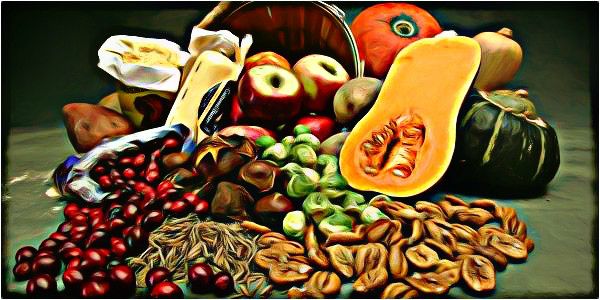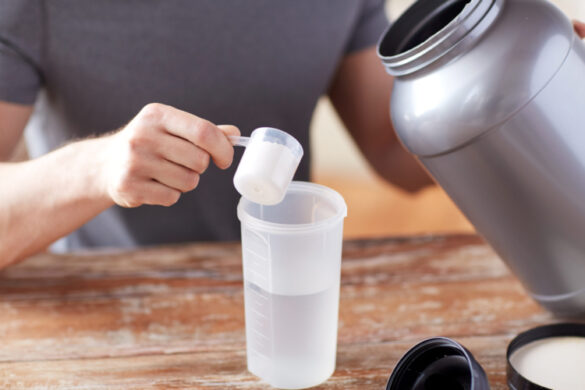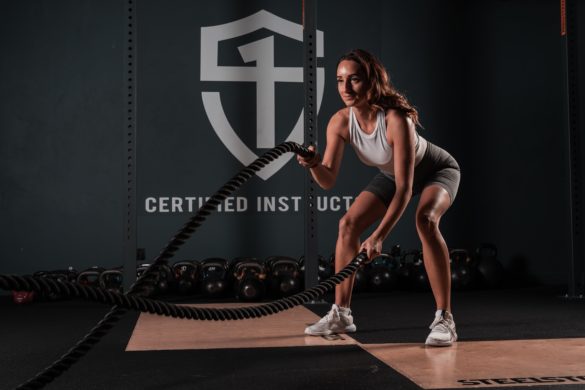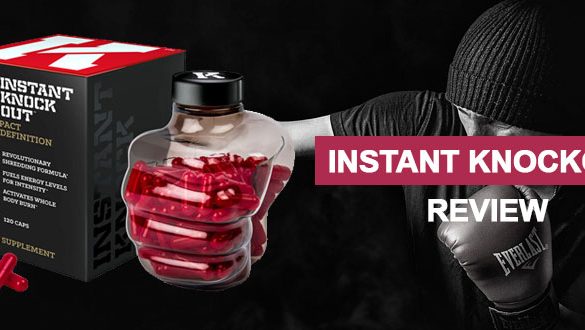As women, we quickly learn to recognize those early PMS symptoms. Between the mood swings, bloating, sore breasts, and then the dreaded period cramps, you just know you’re in for a few bad days.
Your significant other won’t be able to do anything right, and all you want to do is raid your pantry for all the chocolate and comfort food. We know that comfort eating isn’t really good for our health and waistline, but some of the foods we turn to can actually make period symptoms quite a bit worse.
I spend a lot of my professional time working with dieticians, and over the years, I have learned a few tips on how to balance my diet at that dreaded time of the month. So, in this blog, I’m going to address what to eat on your period to help you reduce your symptoms.
Let’s get right into the nutrition side of things.
One of the biggest problems is that the blood loss will drain your body of a lot of vital nutrients. You’ll probably have noticed this in the months when you have a particularly heavy period (as if a regular month wasn’t punishment enough).
You can start feeling increasingly fatigued as your body tries to replenish the loss of blood. And unless you provide it with certain nutrition, you can actually make the symptoms worse.
And here’s what you need to focus on.
1. Iron

This mineral is vital for the production of new red blood cells, so make sure you stock up on extra sources once you notice the first symptoms. (1)
While red meat is a good source, it can also make you feel more bloated. I would recommend eating more fish, lentils, and plenty of leafy greens to boost your iron levels.
If you’re still struggling, then maybe look for some supplements to take. There are tons of reliable products that can supply the right amount of iron your body needs.
2. Vitamin B12
Many women just think of iron as something they need to boost to produce new red blood cells. But without certain vitamins, especially B12, you can quickly become anaemic, which only adds insult to injury.
The good news is that a lot of the food that contains high levels of iron (e.g., leafy greens) will also have a good amount of B12.
However, if you become reliant on iron supplements, then make sure you take a B12 booster as well.

3. Magnesium

This one really surprised me, but after I thought about it a bit more, it made perfect sense.
I often take magnesium supplements after exercise, especially after high-intensity fitness classes like Spinning. The reason is simple; it helps reduce the chance of cramps and relaxes the muscles. (2)
And the same effect has been shown to work on stomach cramps by relaxing your stomach muscles a bit. And who wouldn't like that?
4. Fiber
Bloating is something so many women simply cannot avoid, no matter how light their diet is. You just constantly feel full, even hours after a small snack. And the comfort food certainly doesn’t make it any better.
The good news is that you don’t have to resort to medication or drastic measures to keep things moving along.
Simply increase your fiber intake, even a few days before your menstrual cycle begins. Munch on fiber-rich foods such as bananas, apples, and mangoes. (3)

5. Calcium

Several studies have been conducted to test calcium supplements during the menstrual cycle.
One of these showed a significant drop in pain and cramps while a second one noted a reduction in water retention and bloating. That was good enough reason for me to get some extra calcium in.
There are tons of calcium-enriched foods that you can eat such as broccoli, cabbage, soya beans, tofu, bread, fish, and nuts. And the list goes on and on...
What Foods Should You Stock Up On Before Your Period?
Now that you know which nutrients you need to get more of, it’s time to look at what the best period foods are.
1. Fish And Seafood
Fish is packed full of fatty acids, especially Omega-3, which is a great source of energy but will also help to reduce the bloated feeling and cramps. From just a flavor perspective, I recommend salmon, but hake and cod are excellent and healthy choices as well.
I would avoid the fish you can get that is preserved in salt and/or vinegar and oil. The extra salt can dehydrate you and actually add to your stomach cramps.
During particularly bad periods, I often resort to only fish while avoiding meat altogether. It definitely makes things easier.

2. Load Up On Berries

Blueberries and blackberries are my top choice, and I try to take a handful of them several times a day. They’re great with breakfast and a lunchtime fruit salad and will work wonders on your period cramps and hormones.
The vitamins, minerals, and most importantly, the antioxidants will help to detox and rebalance your hormone levels. (4)
They are also believed to directly improve estrogen levels, so if you’re at a stage in your life where you have an already low level, then some berries can make a difference.
3. Fruit And Veg With High Water Content
We’ve already mentioned green and leafy veg to get a boost of vitamins and minerals, but you also want to get some extra fruits that are high in water content.
They will help improve your hydration levels naturally, and you’ll be able to get a lot more fiber into your system as well. From a digestion perspective, your typical plant-based foods will be a lot easier to digest, which can also help reduce the bloating.
But don’t take this as a green light to pile up on the fries.

4. Dark Chocolate

I kept this little surprise until last. Ever since my first period, one of the biggest food cravings I would get is chocolate.
I could eat it morning, noon, and night, and while it would reduce some cravings, I kind of figured it would make things worse, and not just because of the weight I would be piling on.
What I didn’t realize is that a really high cocoa dark chocolate would satisfy the same cravings and actually help.
Especially if it’s very low in cream and sugar. The bitterness takes a bit of getting used to, but it will trigger some much-needed endorphins to lighten up the mood a little.
What Foods Should You Avoid?
OK, now that we’ve covered the foods to eat on your period, let’s take a look at what to avoid. Personally, I think these are more important, as I have found they really do make things quite a lot worse, and your body will rebel.
1. Stay Away From Sugary Treats
I used to be a sucker for donuts, chocolate, and soda. They were my go-to feel-good foods, especially when my uterus was doing summersaults.
However, these are some of the worst things you can eat, along with highly processed foods full of bad fats.
First of all, they will completely mess up your blood sugar levels, which are already all over the place. And the added gas from the carbonated soda will just light a fire under your already bloated stomach.

2. Excessive Caffeine

While I can’t live without my morning coffee, I tend to avoid drinking more than two cups a day.
The reason caffeine is such a bad idea is that it will actually constrict your blood vessels, including those feeding your uterus.
This can increase the already bad cramping. It’s something I was always suspicious of, but if you feel like things get worse within about half an hour of a cup of coffee, then try if you can go without it for a few days.
3. Dairy Products
You know those lovely cheeses, yogurt, cream, milkshakes, and the list goes on. While at any other given time they will be perfectly fine to eat within moderation, when you’re in the midst of a battle to keep your uterus in place, these can all be a terrible mistake.
First of all, they can fuel the bloating because heavy fats are quite hard to digest. Secondly, dairy products contain a lot of Omega-6, and too much of this fatty acid is known to cause inflammation. The end result will be more cramping and misery.

Not Sure Where to Start?
Beyond Body is the first fully personalized wellness book in the world. It guarantees that anyone can achieve their health goals and bring back their confidence by following customized nutrition, fitness, and habit-building programs.
Beyond Body book includes a Personalized 28-day meal plan focused on ingredients, not on specific dishes. For each meal of the day, you will get options, alternatives, and substitutes. Try out different combinations and learn what works for you on your period as well.
Take this short quiz to get a wellness program that is tailored to your wellness goals.
Period Symptoms & Nutrition: The Bottom Line

When it comes to figuring out how to make your period lighter, it all comes down to keeping a good balance of nutrients.
The above tips will make quite a difference, and if you eat your meals in smaller snack sizes, then you can keep the cravings at bay and the bloating away.
If you have PCOS, you can take helpful supplements along with the points mentioned above. Moderation is the key here, ladies!
References:
1. Adamson J, Erythropoietin, iron metabolism, and red blood cell production., retrieved from https://www.ncbi.nlm.nih.gov/pubmed/8723573
2. Ryan Raman, MS, RD, What Does Magnesium Do for Your Body?, retrieved from https://www.healthline.com/nutrition/what-does-magnesium-do
3. Kris Gunnars, BSc, 22 High-Fiber Foods You Should Eat, retrieved from https://www.healthline.com/nutrition/22-high-fiber-foods
4. Jeanie Lerche Davis, Antioxidants in Fruits, retrieved from https://www.webmd.com/diet/features/antioxidants-in-fruits#1










